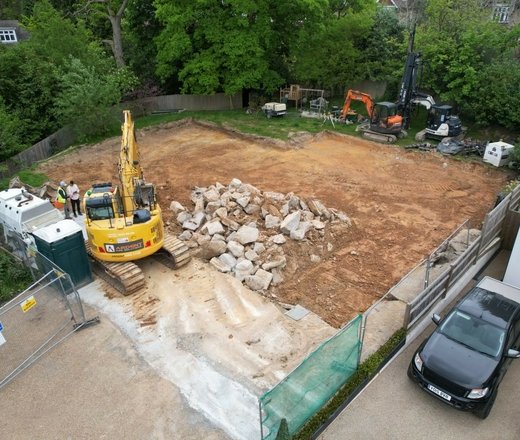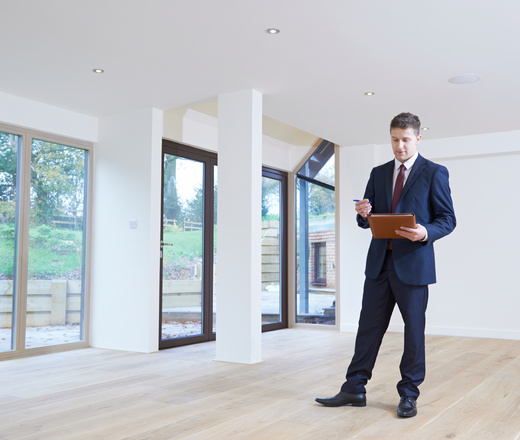When buying a flat it is important that the purchaser understands exactly what they are acquiring. A purchaser will view the property several times and will have a great understanding of the layout, condition, the parts of the property they love and the areas they think need some work. What buyers are less interested in is the paperwork and specifically the lease, even though this document is arguably as important as the physical makeup of the property you are purchasing. Its just not as exciting.
It has happened so often; I am no longer surprised when a client tells me they do not know how many years are left on the term of the lease. I expect it is important to me as it is the world I work in but for most people, it was a document they vaguely recollect from a distant past when they purchased their property.
In fact, it is the single most important document you have when you buy a flat, so when your solicitor sends you the bundle of documents during a purchase, make sure you read the lease, understand the important terms and keep it safe!
Within the terms of the lease, the most important question is how many years are left on the lease. Hopefully, this BLOG will make clear why this is so important.
What is a Lease
Apologies for teaching most of you to suck eggs but in order for the legislation around residential lease extensions to make sense, a definition of a lease is necessary.
When we refer to a lease in this BLOG we are referring to a residential lease, typically 125 years when originally granted. A lease is a contract between a Freeholder (the landlord) and the Leaseholder (the tenant) setting out the terms of the agreement between both parties. Terms such as the duration of the lease, the ground rent payable per annum, rent review clauses, repairing and insuring obligations and other rights and obligations to both parties.
What is a Lease Extension
A leaseholder is entitled to extend their leasehold interest in their property by 90 years. This is a statutory right and in simple terms the leaseholder can force the freeholder to grant them an additional 90-year term. This would mean, if today you hold a lease with 85 years remaining, by undertaking a lease extension you would increase this term to 175 years. In addition to receiving a 90-year extension to your lease, your ground rent will be zero for duration of the new lease.
Why Extend Your Lease
The primary reason for a lease extension is to prolong your occupation or ownership of your property, to keep a roof over your head. From an investment perspective a lease is a wasting asset and as the lease gets shorter the value of the lease will decrease. Extending the term of your lease initially protects its value and can increase its value. The cost to extend a lease becomes more expensive the shorter the lease, so not only is it important to extend a lease but it is equally important to extend a lease sooner rather than later. Which is the key take away from this BLOG – read your lease today!
What is the process Involved?
The process involved is a BLOG in itself and probably one that would struggle to retain the reader’s attention, I will aim to keep it simple.
For a leaseholder the first step in the process is to instruct a solicitor with experience in the field. A solicitor or surveyor who is not experienced in this statutory process could unwittingly make a mistake which could delay the process by a year or more, so your choice of solicitor is vital. Your surveyor will undertake a valuation in order to determine the premium payable. Thereafter, your solicitor serves the tenants notice of claim on the landlord. The landlord will also undertake a valuation to determine the Premium. The reason both parties undertake a valuation is because property valuation is not a science. The leaseholder will want to ensure they do not pay too much but by the same token, the freeholder will want to ensure they receive the correct level of compensation for selling an additional 90 year term. Like any property transaction there is a negotiation to be had.
Once both parties have exchanged their respective notice’s, the surveyor’s acting for both parties should attempt to negotiate an agreement on the premium to be paid for the lease extension. If the premium is in dispute two months after the date the Landlord’s notice is received, then either party can apply to the First Tier Tribunal for the matter in dispute to be determined. It is much more common for a case to be agreed quickly by agreement.
In terms of a timeline, the quickest a statutory lease extension could be completed would be about one or two months. If either party is determined to take the case through Tribunal (which is very unusual) it could take as much as twelve to eighteen months.
How Much Will A Lease Extension Cost
This is invariably the most important question. The price is linked to three main factors. The value of the Property, the ground rent provisions, and the number of years left on the lease. The greater the value of the flat, the greater the cost to extend. The higher the ground rent, the higher the cost to extend and the shorter the term remaining, the higher the cost of a lease extension.
In addition to the premium and professional fees, the tenant is also required to reimburse the freeholder their legal costs and valuation fees.
When Should You Extend a Lease
I believe once the lease drops below 100 years you should consider extending the lease and once it drops below 90 years you should definitely extend your lease. Many of my instructions come from clients who have put their flat on the market with 90 years remaining. An offer has been made and accepted on a flat before the term has been established by the buyer. The buyer then makes it a condition of the purchase that the seller applies for and pays for a lease extension. This will slow down and in some instances thwart a sale. It is therefore important, that if possible, you extend your lease before you put the property on the market as it will make the flat more marketable and therefore saleable.
A key number to remember is 80 years. If your lease drops below 80 years remaining, the cost to extend the lease becomes considerably more expensive because an additional element of compensation called Marriage Value kicks in when a lease has less than 80 years remaining. For example if you serve notice to extend your lease with 79 years remaining, compared to the same flat with 81 years remaining, the cost to extend could be twice as much.
If you have any questions regarding the lease extension process, please get in touch. And remember, read your lease and check how many years are left!

Market your property with Maddisons Residential
For many, the first point in their house moving journey, is to understand the value of their current home. Whether you want a quick, instant, online indication, or a more robust property specific and individual valuation, we would be delighted to help.





